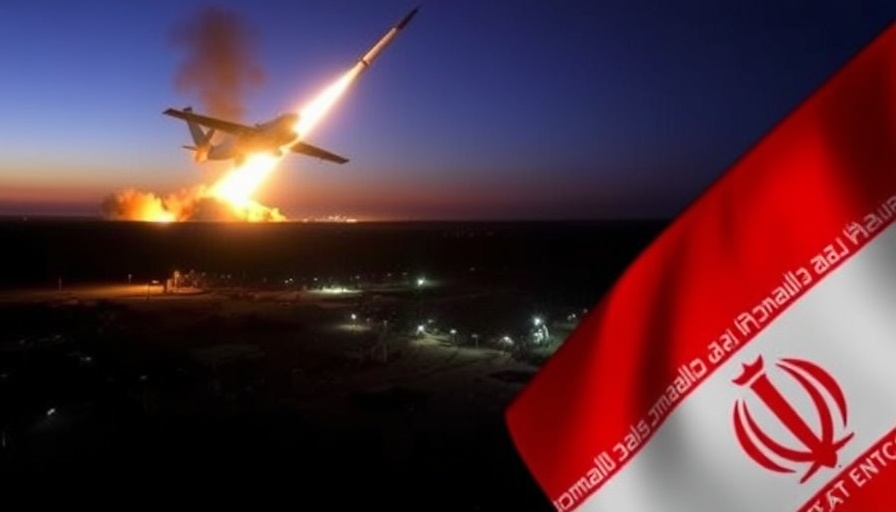
Escalating Tensions: Israel Strikes Iran's Nuclear Ambitions
The recent military actions witnessed between Israel and Iran after Israel targeted nuclear facilities underscore the precarious balance of power in the Middle East. Israel's aggressive approach, aimed at crippling Iran’s potential nuclear capabilities, illustrates its unwavering stance against what it perceives as existential threats. This attack marks a crucial turning point, highlighting not just Israel's military strategy, but the broader implications for global geopolitics, particularly how these tensions resonate across regions including Africa.
Iran's Drone Arsenal: A New Dimension to Military Strategy
In retaliation, Iran's move to harness its drone capabilities signals an intention to fortify its military response mechanism. The strategic deployment of drones can affect regional dynamics significantly, not only within Iran's immediate geographies but also in broader engagements, involving African nations. For policymakers and business leaders, understanding Iran's growing military sophistication is crucial given its potential influence on Africa's energy security and international trade networks.
Africa's Response: Economic and Diplomatic Considerations
For African nations, the unfolding crisis could lead to varied responses. As countries in the continent increasingly engage in diplomacy within the global sphere, the rippling effects of the Iran-Israel conflict may shape governance and economic strategies across Africa. The ramifications of military actions in the Middle East often target energy prices and trade routes that are vital to African economies. Consequently, the region’s investors and policymakers must brace for potential shocks that could affect the African economy and its global standing.
Global Geopolitical Dynamics and Africa's Positioning
In the context of Africa's foreign relations, this military escalation can prompt a reevaluation of alliances, particularly as African nations navigate their partnerships with both the Middle East and global powers such as China and the EU. Understanding how these geopolitical currents affect Africa's role in global trade can enable leaders and investors to anticipate and mitigate associated risks.
Conclusion: The Impending Impact on Africa
As Africa tunes into the unfolding geopolitical tensions, the broader implications on trade and security policies become paramount. For business leaders and researchers, the key takeaway is clear: staying informed about global conflicts is essential for strategic decision-making and understanding their potential economic repercussions on Africa's future.
 Add Row
Add Row  Add
Add 


 Add Row
Add Row  Add
Add 

Write A Comment